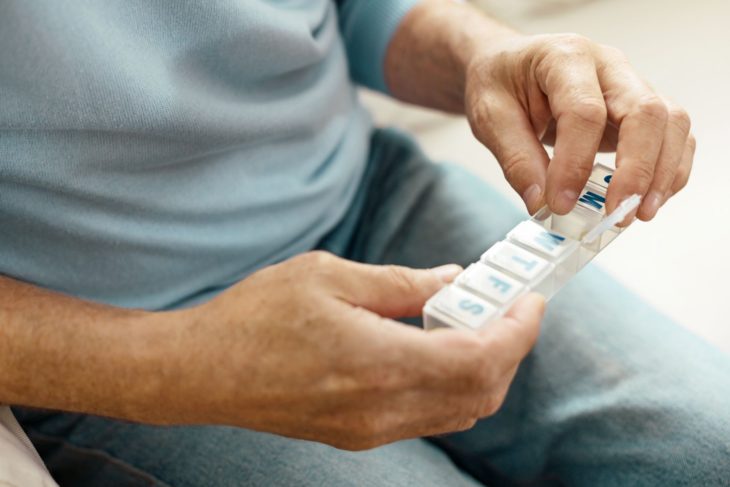Contents
What is Erectile Dysfunction
Erectile dysfunction, also known as male sexual impotence, is the persistent inability to achieve or maintain an erection that allows a satisfactory sexual relationship.
It must be differentiated from other sexual problems, such as lack of desire, ejaculation disorders (premature ejaculation, delayed ejaculation, and absence of ejaculation) or orgasm disorders.
Erectile dysfunction is not a disease but a symptom. In the absence of a psychogenic cause, it is “a symptom of involvement of vessels and nerves responsible for erection, due to smoking, diabetes, aging hypertension, sedentary lifestyle, overweight, obesity, etc. ”
That is a frequent problem and, if left untreated, can affect relationships, and the work and social environment.

Source: diabetes
Symptoms
The main symptom of erectile dysfunction is a change in the quality of the erection. It can be both in terms of stiffness, and in the ability to maintain an erection.
Types
At present, some experts establish the following classification to distinguish the different types of erectile dysfunction:
1. Mild
2. Moderate
3. Serious
Vascular causes
That is very common. The penis cannot accumulate the necessary blood for an erection to occur, usually because of insufficient quantity. Smoking, high blood pressure, diabetes, some heart disease, and increased blood cholesterol levels can cause vascular disorders that make erection difficult.

Source: intermountainhealthcare
Diagnosis
For the elaboration of a correct diagnosis, the patient must undergo medical examinations that allow establishing a good clinical history.
An interview with the affected person may reveal psychological factors involved in the erection disorder. It is essential to rule out depression, which is not always apparent. The scale for Beck’s depression and the Yesavage geriatric depression scale in the elderly are simple and easy to perform.
Personal relationships should also be analyzed to determine if there are conflicts or communication difficulties with the couple. An interview with the sexual partner of the affected can reveal essential data.
On the other hand, there are currently several tests that help establish the diagnosis of erectile dysfunction. Specialists usually use mainly two: the IIEF (International Index of Erectile Function) or SHIM (Sexual Health Index for Men), a reduced variant of the IIEF that consists of 5 questions and presents high sensitivity and specificity. A score less than or equal to 21 shows signs of erectile dysfunction.
The general medical asses
sment should include a history of intake of drugs, alcohol, smoking, diabetes, hypertension, and atherosclerosis, an exploration of the external genitalia to rule out the presence of fibrous bands, and an assessment of the signs of vascular, hormonal or neurological diseases.
Specialists recommend measuring testosterone levels, primarily if impotence is associated with a lack of desire.
Laboratory tests should include the assessment of thyroid function. It may also be useful to determine the lutein hormone since it is challenging to diagnose hypogonadism based on testosterone values alone.
In the case of young patients with specific problems, it may be necessary to perform more complex tests in addition to the physical examination, such as a measurement-monitoring of the penis at night, the injection of medications into the penis, or an echo-Doppler.
Determining vascular indexes is especially beneficial for a correct diagnosis, such as the penile pressure-brachial pressure index that indicates a risk of other more vascular severe disorders, even in asymptomatic patients.
When the cause is unclear, it may be useful to perform a nocturnal penile tumescence test (NPT), although it does not usually work in elderly patients. The episodes of TNP are typically associated with the phases of REM sleep. The patient’s erections can be controlled in a specialized sleep laboratory; their absence is highly suggestive of an organic cause, although their presence does not necessarily indicate that during the day, they have solid erections.

Source: inquirer
Hormonal causes
They are rare and usually happen due to a lack of male sex hormones.
Pharmacological causes
Several medications can have decreased erection as a side effect. Among them, there are some drugs to treat hypertension, heart disease, and psychiatric disorders.
Depression
There is an infinite loop with ED. It can be caused by depression and also lead to depression. It feeds into itself and makes your situation and your life worse.
It isn’t clear why depression can cause ED, but it seems like depression decreases your testosterone level. One of the most significant factors in erectile dysfunction is low testosterone.
According to the Manual.Co, when the common symptoms of erectile dysfunction start to manifest themselves, you become even more depressed.
Neurological causes
In these cases, there is an interruption in the transfer of messages from the brain to the penis. That can occur because of spinal cord injuries and multiple sclerosis after some surgical interventions in the pelvis.

Source: health
Anxiety
Men with ED often end up with anxiety. The thought of not being able to perform becomes paralyzing, and they start avoiding intimacy.
It doesn’t stop there, however. If work has been stressful, then this kind of anxiety can also lead to worrying about work. What if you don’t perform well at work now, too? Anxiety levels rise and then bleed into other areas.
If you have to do some public speaking, performance anxiety can become a problem even there.
Prevention
The primary measure that men should take into account to avoid the onset of erectile dysfunction is the modification of lifestyle to prevent any habit that negatively impacts arteries and veins, such as smoking, alcohol consumption, and saturated fats, Sedentary life and stress.
Treatments
Many doctors suggest starting with a healthy lifestyle, continuing with psychological help and pharmacological treatment or vacuum devices, and, finally, surgery.
Psychological help is recommended to men under 40 since, in these cases, the cause of the disease is usually psychological. Even in cases of impotence / erectile dysfunction due to physical problems, many men need psychological help to overcome self-esteem problems derived from this disease.
